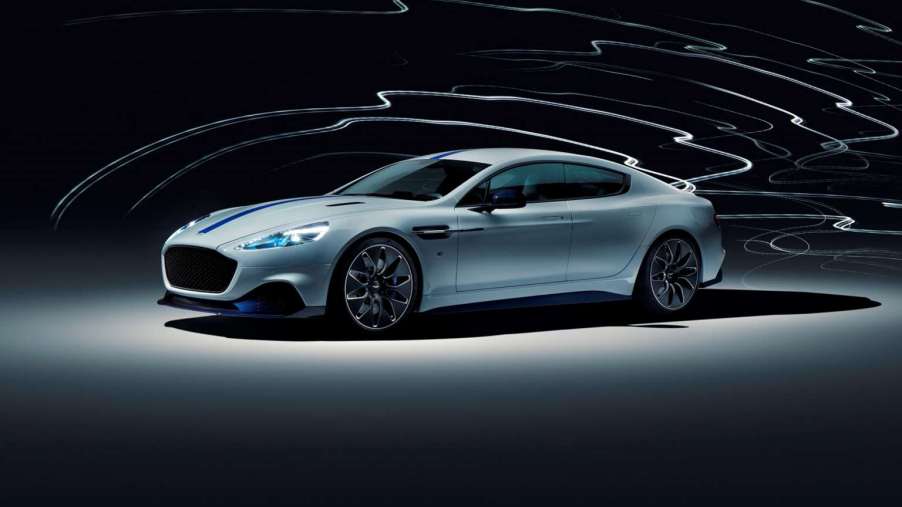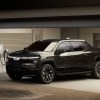
Are Bentley and Aston Martin EVs Coming Too Late to Succeed?
Complain all you will about Tesla and the problems it has with build-quality, but there’s no denying that it’s the electric automaker. At least in the U.S. Not only did the Tesla Model S show mainstream consumers that an EV could be a real car, it also continues to be one of the most influential cars ever released. Other automakers have recently begun to introduce their own long-range EVs, but it’s hard to catch up to a brand that’s had such a big head start.
We’ve even heard plenty of people suggest that legacy automakers will never catch up to Tesla. That seems a little farfetched, especially considering how much money other automakers have. But we wouldn’t be surprised to see some big winners and even bigger losers as EVs become more common. Still, is it possible that some automakers have already missed their chance to ride the wave of EV success? According to a recent Forbes post, yes.
Aston Martin and Bentley will miss out?
If you believe the argument in the editorial, both Aston Martin and Bentley are in big trouble. They won’t have fully electric cars to sell for several more years, and when those cars do eventually go on sale, it will be too late. The auto industry will have moved on, and both British luxury brands will be toast.
Granted, it’s not exactly crazy to question whether or not British automakers will stay in business. The country’s auto industry has seen its fair share of bankruptcies, and Brexit won’t make it any easier on them. So it’s entirely possible that at least one of the automakers mentioned will have filed for bankruptcy in a decade. But that doesn’t mean we buy the argument that it will be because they didn’t start selling long-range EVs quickly enough.
Why Aston Martin and Bentley will be just fine
The author points out that EV adoption rates are increasing in Europe, and as the two brands it highlighted suggest, the article itself is mostly focused on the European market. It also acknowledges that EVs make up only 5.5% of car sales in the UK, up from 1.4% the year before.
If the UK’s EV adoption rates were to continue to quadruple every year for the next two years, then yeah, we’d be on board with the idea that automakers without EVs in their lineups are in trouble. Nearly 90% of all car sales being EVs in 2022? That’s a problem for basically every automaker that doesn’t have a full EV lineup.
What’s much more likely, though, is that EV adoption continues to only rise a few percentage points a year. Probably at an increasing rate but not approaching anything remotely exponential. That’s really what our criticism of this article hinges on, too.
So Bentley and Aston Martin will be fine?
We’re not in the business of predicting the future, so we’ll just say we don’t see the lack of EVs from either automaker being a business problem. If other factors mess up their businesses, that’s out of our control. But EVs alone? That’s unlikely.
One of the most important things to remember is that we’re talking about companies that cater to customers with extremely high net worths. Some financial guru who hates credit cards may have told you that there are self-made millionaires on every corner, but even if that were true, most of those people would be neither Bentley nor Aston Martin customers. If you only need a few thousand customers per year, there’s a lot less pressure to respond to mainstream industry trends.
The article also assumes the wealthy will suddenly develop loyalty to EV upstarts, which is hard to believe. Aston Martin and Bentley both have a history that buys loyalty, as do their dealerships and service centers. They also have very smart math people (the technical term in the industry) who have probably made it clear that they don’t see previous customers abandoning their respective brands over a lack of EVs.
In fact, one of the article’s criticisms isn’t that Bentley won’t have a single EV before 2030. It’s that Bentley won’t go fully electric before that time. When you consider that the kind of person who can afford a Continental GT probably doesn’t care what the price of gas is, it makes sense that the brand would continue to offer a few options with internal combustion engines long after its first EV goes on sale.
It’s also not like these are brands that lack corporate partnerships that they could use to get a long-range EV to market faster. Mercedes has an EV platform Aston Martin could use. Volkswagen AG has an EV platform Bentley could use. If either wanted to rush a car to market, they could probably do it. From a business perspective, it probably just makes more sense to roll out EVs the right way for the right customers.


